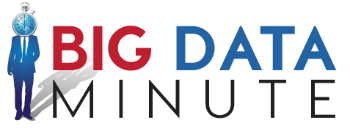
by Richard Batenburg | May 16, 2015 | Creating Competitive Advantage
In the never-ending pursuit of productivity, process automation is often an appealing solution for a business department or company division seeking greater efficiency and lower expenses. The ideal approach to the problem is often software that addresses the user’s unique issues, ensuring better fit, smoother deployment and easier adoption. But paradoxically, organizations in greatest need of such a solution may not have the budget for the process automation tools that will make the biggest impact, or have a culture that embraces change.
A smart process automation consultant can help you spread the cost, share the benefits, and become a company hero by extending the use of your department’s software to other user groups. After all, the same process automation tools can most likely support a variety of related processes.
Tools used to route and dispatch the service workforce can also be used for a sales force, often with just a minor tweak. For example, consider the large telecommunications company whose non-pay disconnect group needed help. This team cut off service at the utility pole for customers whose accounts were in arrears. They operated apart from normal field operations functions as well as the field audit group, which detected illegal connections and theft of service. But on examination, a savvy process automation consultant determined that the procedures followed by these three departments had a great deal in common, and that they both shared key elements with activities of the “feet on the street” sales team.
The new process automation tool designed for the field service department worked very well for the disconnect team and the field audit folks. Joining with the sales team, all three groups became a powerful part of the company’s sales force and drove out the cost of redundant systems. Instead of simply cutting off service at the utility pole for non-paying customers, the team began calling on these customers to offer them the opportunity to settle accounts and keep their service. The tap audit team likewise turned service thieves into honest, paying customers. Service technicians earned sales commissions, the CFO was ecstatic, and the department head who initiated the process automation received kudos from all quarters.
Although distinct from process automation, business intelligence software offers another attractive opportunity to spread the wealth – and costs – among multiple departments. This takes very little salesmanship, as staff members notice that their colleagues in the newly BI-empowered department suddenly have valuable data, and are no longer griping about reports that are out of date on delivery. The interest generated by water-cooler chat can easily lead to BI tools that benefit the entire organization.
Sharing process automation tools among work groups inevitably yields another valuable benefit: as information is shared, communication grows between user groups. As a result, departmental silos that may have developed over time begin to dissolve, leading to a more integrated, mission-focused organization.
An experienced process automation advisor can help you uncover opportunities within your organization to extend custom software applications. It’s just a matter of adopting a broad perspective, rallying support for a change to intercompany corporative processes and then preparing for applause.
To learn more about maximizing process automation, please visit www.cliintel.com or e-mail askcliintel@cliintel.com.

by Richard Batenburg | Jan 6, 2015 | Creating Competitive Advantage, Project Management
Project management is among the most popular and familiar of the professional services. By keeping a well-defined project on budget and on time, a skilled project manager can make the difference between successful and failed systems development and process improvement projects. While quantitative project components certainly need to be managed carefully, the job becomes much more challenging when project parameters are fluid, not clearly understood and/or not effectively defined. This is often the case in the development of new software or a new business process. In such situations, it is generally advisable to seek out the professional services of an experienced business analyst. BAs focus on the quality of the deliverable – be it software or process. A BA‘s role is to ensure that the final process improvement solution will meet the company goals and that it connects effectively with the organization’s structure, policies and operations.
In an environment where many companies have reduced internal headcount in response to the economic downturn, today’s successful companies are relying more than ever on professional service providers to help with business process improvements. Engaging a trusted advisor is a wise use of limited resources, and ensures that critical new projects will go forward in sync with day-to-day business operations.
The business analyst can be known by many names, including process analyst, project analyst or, in highly technical settings, systems analyst. While the BA’s job description is highly flexible, the professional service provider can contribute a distinct set of skills to business process improvement. Leading the list are the objectivity and familiarity with your industry that he or she can bring to the project. This combination allows an experienced BA to speak with customers and employees, accurately interpret their input, and translate it into practical and specific technical solutions. A trusted business analyst can see beyond immediate process improvement or data management needs to address potential future issues and requirements from an objective, unbiased position.
Effective business analysts are naturally curious and inquisitive. Among the most valuable professional services they provide is the ability to ask the right questions. A well constructed, objective information collection technique can be the key to quickly determining why things aren’t working and how to improve business processes or tools. An experienced technical BA will be well acquainted with the systems development life cycle – the continuous process of planning, analysis, design, implementation, and maintenance that is the foundation of much software development.
Obviously, you can’t improve business processes in a vacuum. Effective business analysts have the flexibility needed to work within the client’s culture and style. Flexibility is also essential as the business analyst must wear multiple hats. At any point in a given project, the BA may be called upon to gather, interpret, or document requirements, design system architecture, support the project manager, or facilitate communication among customer, developer, and the project management team.
When a large business process improvement or data management project is on the line, it’s ideal to engage a support team that includes both a project manager and a business analyst. The team approach offers the most effective balance between quality and budget considerations. But if resources are scarce, and the project is of moderate size, it is possible to find a trusted advisor who is skilled in both professional services – business analysis and project management. Wearing her business analyst hat, your advisor will look at the current state and help determine how it can or should change and the technical requirements needed to get there. As project manager, your advisor can then collect and report essential
information to keep the project on time and on budget. This is a an important, and often challenging, balancing act but the right advisor can make the difference between merely meeting and truly fulfilling your process improvement and data management goals.
To learn more about professional services to improve business processes, please visit www.cliintel.com or e-mail askcliintel@cliintel.com.








Recent Comments